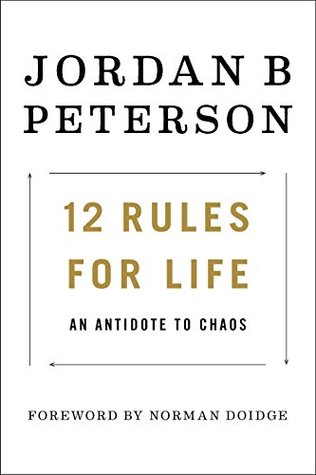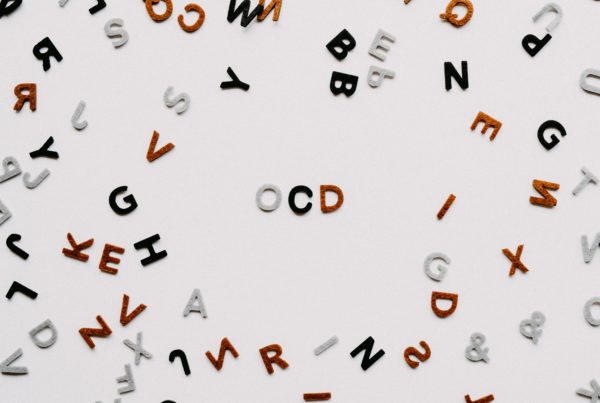
Jordan Peterson is a Canadian clinical psychologist who suddenly appeared in the public eye with his controversial political views a couple of years ago. In his most recent book 12 Rules for Life, he proposes twelve principles that will help you get your life in order, and more importantly, find the meaning in it. His controversial identity obviously made his book a controversial one too. But as this is a magazine for psychology enthusiasts, the scope of this review will be limited to psychology.
Peterson starts his book by revealing the claim that life is tragic, chaotic, and filled with suffering. As pessimistic as it sounds, the claim has merit. It is true that there are obstacles everywhere in life and suffering is a fact. What to do then? What motivates us to live despite suffering? Most people would say “it’s the little happy moments in life”, but Peterson doesn’t really agree with that. Instead, he says the antidote to suffering is the meaning in life. Happiness is too fragile but meaning is with us during all ups and downs, and it makes life worth suffering.
In 12 Rules for Life Peterson tells us his recipe to find this magical meaning: by incrementally improving ourselves. Although it sounds a bit abstract, the principles that he proposes are actually as simple as making friends with good people or standing up straight with your shoulders back. Take Rule 6 for example, “Set your house in perfect order before you criticize the world” or more commonly known in the internet as “Clean your room!”. In this rule’s chapter, Peterson tells his readers to take responsibility for their lives. Instead of blaming others for our own problems, we should just look at ourselves, see our flaws, and fix them. As it is not possible to perfectly fix ourselves overnight, Peterson also tells us to aim low. Start by making your bed every morning, keeping your room clean, or washing the dishes regularly. Aim low enough to have achievements and gain authority over your life. Then take it to a higher level every next day and constantly challenge yourself. Always be ready to improve yourself, keep looking around to see something that bothers you, and fix it. If you can have control over your room, in other words, if you can take care of yourself, then start taking care of your family and your friends. As you get better at taking care of yourself, the closest human being to you, you will also get better at understanding other people’s needs. In short, fill your own cup first. This way, you will be useful both to yourself and to the people that surround you.
While 12 Rules for Life is mainly a self-help book, it gets into psychology, philosophy, history, mythology, politics, and even religion. Therefore, if you decide to pick up the book, don’t expect a regular one. Even though the main ideas are quite straight-forward (they are already written on the table of contents), the lines of reasoning are very dense and a bit messy. I found it hard to keep my focus on the book and felt lost pretty often. For the same reason, I also had a hard time while paraphrasing Peterson in this article. Although I attribute this complex language to his own complex thought patterns, it contradicts with his Rule 10: be precise in your speech. Maybe he is speaking precisely in his mind though, who knows.
Moreover, as already mentioned, there are many mythological and religious texts (mostly from the Bible) in 12 Rules for Life, and Peterson usually illustrates his points with these texts. Although it was interesting for me to read how he brought non-scientific perspectives into view, I wanted to read more scientific studies along with those different perspectives. On this matter, it is on readers to decide if bringing the scientific and the “non-scientific” worlds together creates harmony or a mess for a self-help book.
All in all, I got the impression that Peterson didn’t intend to convince anyone in his book. Instead, he just spoke his mind the way it is.
Is 12 Rules for Life a controversial book by a very controversial author? Most certainly. Readers either introduce it as life-changing or throw it in the bin. Would I still recommend it? Absolutely. I can’t say that I agree with the whole book but I definitely learned valuable lessons that changed my perspective in life. Also, I wouldn’t enjoy it as much if I agreed with the whole book, as that was what pushed me into being more critical and thinking more about the ideas in the book. Therefore, besides it being such a good practice for your critical thinking skills, there is something to take for everyone in this book. As per Rule 9, assume that the person you are listening to might know something you don’t.
Available at your local book store or online, starting from €9,39. A Dutch translation is also available: 12 regels voor het leven – Een remedie tegen chaos, starting from €11,95.

Jordan Peterson is a Canadian clinical psychologist who suddenly appeared in the public eye with his controversial political views a couple of years ago. In his most recent book 12 Rules for Life, he proposes twelve principles that will help you get your life in order, and more importantly, find the meaning in it. His controversial identity obviously made his book a controversial one too. But as this is a magazine for psychology enthusiasts, the scope of this review will be limited to psychology.
Peterson starts his book by revealing the claim that life is tragic, chaotic, and filled with suffering. As pessimistic as it sounds, the claim has merit. It is true that there are obstacles everywhere in life and suffering is a fact. What to do then? What motivates us to live despite suffering? Most people would say “it’s the little happy moments in life”, but Peterson doesn’t really agree with that. Instead, he says the antidote to suffering is the meaning in life. Happiness is too fragile but meaning is with us during all ups and downs, and it makes life worth suffering.
In 12 Rules for Life Peterson tells us his recipe to find this magical meaning: by incrementally improving ourselves. Although it sounds a bit abstract, the principles that he proposes are actually as simple as making friends with good people or standing up straight with your shoulders back. Take Rule 6 for example, “Set your house in perfect order before you criticize the world” or more commonly known in the internet as “Clean your room!”. In this rule’s chapter, Peterson tells his readers to take responsibility for their lives. Instead of blaming others for our own problems, we should just look at ourselves, see our flaws, and fix them. As it is not possible to perfectly fix ourselves overnight, Peterson also tells us to aim low. Start by making your bed every morning, keeping your room clean, or washing the dishes regularly. Aim low enough to have achievements and gain authority over your life. Then take it to a higher level every next day and constantly challenge yourself. Always be ready to improve yourself, keep looking around to see something that bothers you, and fix it. If you can have control over your room, in other words, if you can take care of yourself, then start taking care of your family and your friends. As you get better at taking care of yourself, the closest human being to you, you will also get better at understanding other people’s needs. In short, fill your own cup first. This way, you will be useful both to yourself and to the people that surround you.
While 12 Rules for Life is mainly a self-help book, it gets into psychology, philosophy, history, mythology, politics, and even religion. Therefore, if you decide to pick up the book, don’t expect a regular one. Even though the main ideas are quite straight-forward (they are already written on the table of contents), the lines of reasoning are very dense and a bit messy. I found it hard to keep my focus on the book and felt lost pretty often. For the same reason, I also had a hard time while paraphrasing Peterson in this article. Although I attribute this complex language to his own complex thought patterns, it contradicts with his Rule 10: be precise in your speech. Maybe he is speaking precisely in his mind though, who knows.
Moreover, as already mentioned, there are many mythological and religious texts (mostly from the Bible) in 12 Rules for Life, and Peterson usually illustrates his points with these texts. Although it was interesting for me to read how he brought non-scientific perspectives into view, I wanted to read more scientific studies along with those different perspectives. On this matter, it is on readers to decide if bringing the scientific and the “non-scientific” worlds together creates harmony or a mess for a self-help book.
All in all, I got the impression that Peterson didn’t intend to convince anyone in his book. Instead, he just spoke his mind the way it is.
Is 12 Rules for Life a controversial book by a very controversial author? Most certainly. Readers either introduce it as life-changing or throw it in the bin. Would I still recommend it? Absolutely. I can’t say that I agree with the whole book but I definitely learned valuable lessons that changed my perspective in life. Also, I wouldn’t enjoy it as much if I agreed with the whole book, as that was what pushed me into being more critical and thinking more about the ideas in the book. Therefore, besides it being such a good practice for your critical thinking skills, there is something to take for everyone in this book. As per Rule 9, assume that the person you are listening to might know something you don’t.
Available at your local book store or online, starting from €9,39. A Dutch translation is also available: 12 regels voor het leven – Een remedie tegen chaos, starting from €11,95.




